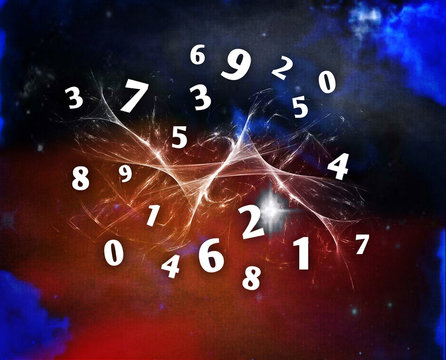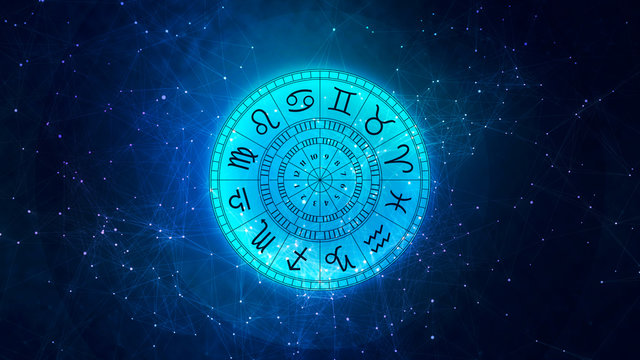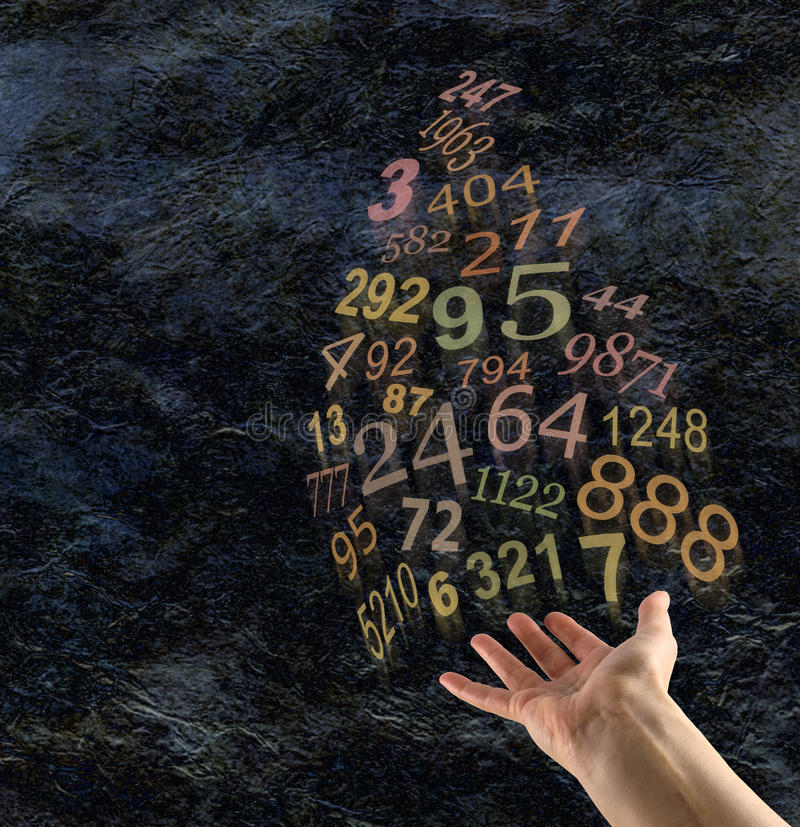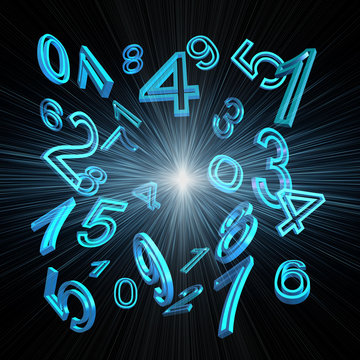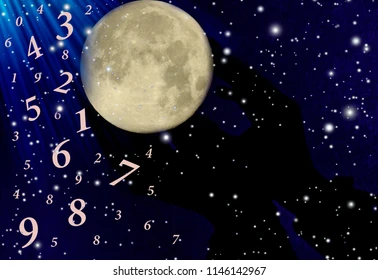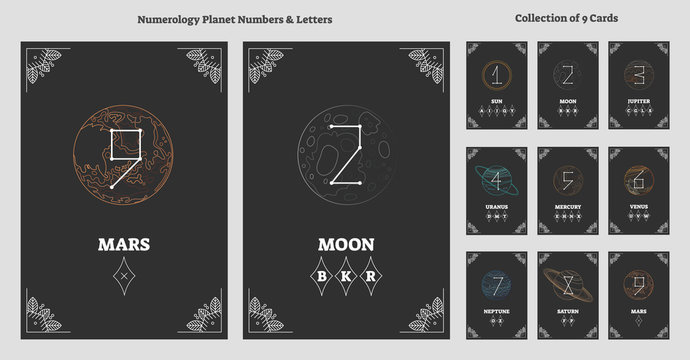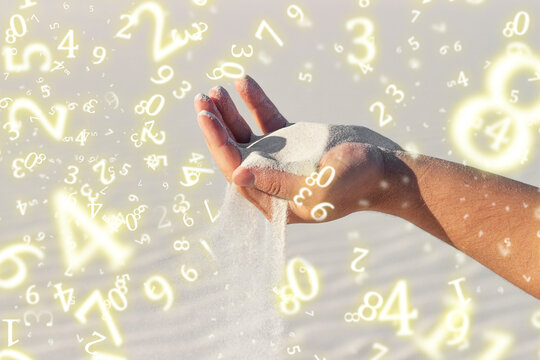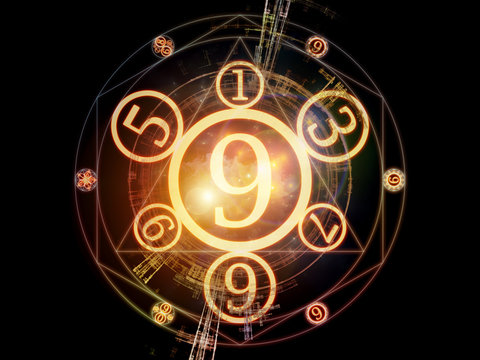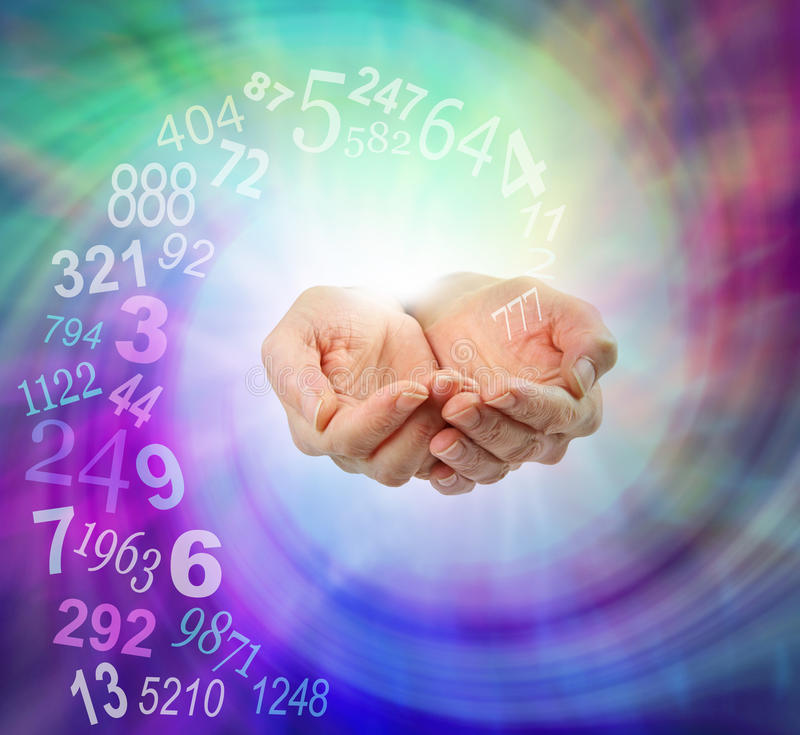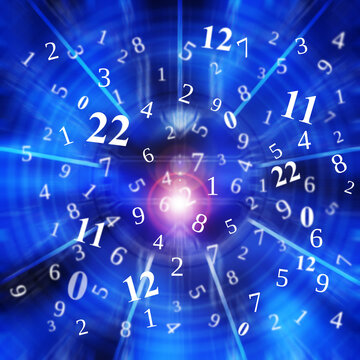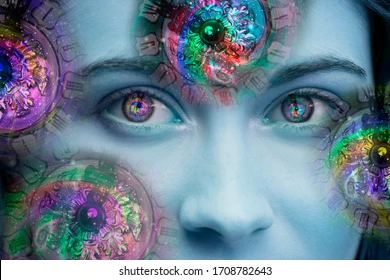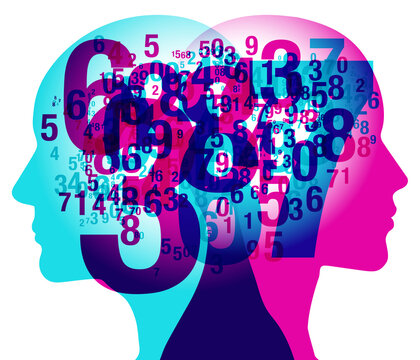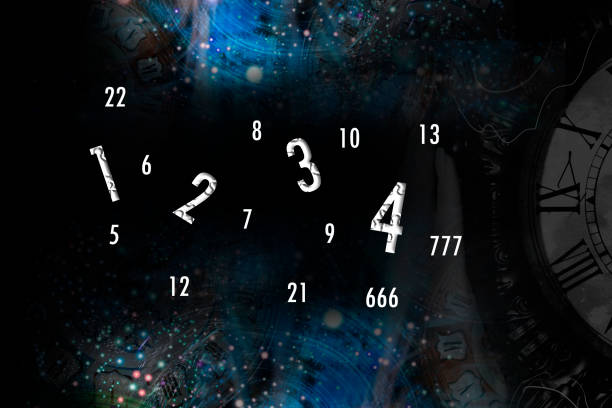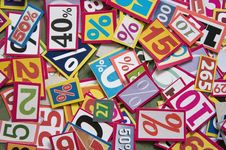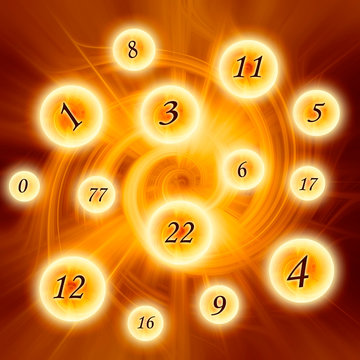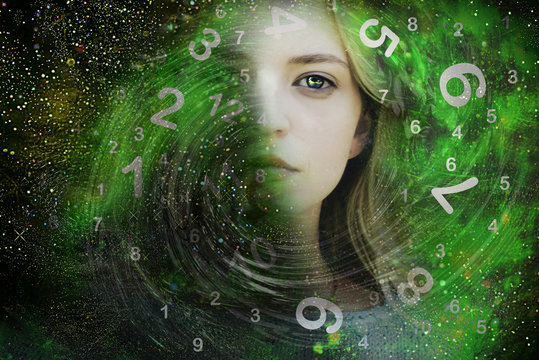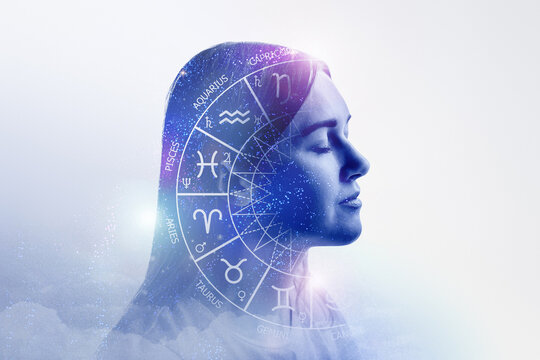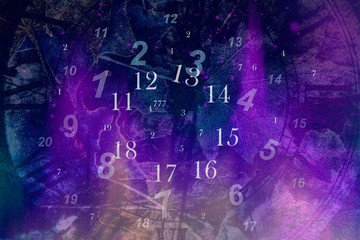
Enigmatic Numerology
In a world where patterns and symbols are woven into the fabric of our existence, there exists a captivating realm that transcends the boundaries of conventional understanding – the world of numerology. Intriguing and mystical, numerology posits that the numbers we encounter in our daily lives are not mere placeholders or mathematical entities but instead hold profound cosmic significance.
From ancient civilizations to contemporary societies, numbers have played a pivotal role in shaping belief systems, influencing decisions, and offering a glimpse into the mysteries of the universe. In this exploration of numerology, we embark on a journey to unravel the secrets encoded within the digits that surround us, delving into the core concepts that underpin this age-old practice.
This article aims to serve as a gateway to the mystical world of numerology numbers, where each digit carries a unique vibration, influencing our personalities, life paths, and destinies. As we navigate the fascinating landscape of numerical interpretations, we’ll discover the methodologies, symbolism, and practical applications that make numerology a compelling and thought-provoking tool for self-discovery.
Join us on this quest to understand the hidden language of numbers, as we unlock the doors to a world where mathematics transforms into a conduit for cosmic wisdom, guiding us towards a deeper understanding of ourselves and the universe at large. Welcome to the enigmatic realm of numerology – where numbers cease to be mere digits and transform into keys to unlock the mysteries of our existence.
Initial Concepts
Numerology, a metaphysical discipline rooted in ancient traditions, posits that numbers are not merely mathematical symbols but carry vibrational energies that influence our lives in profound ways. Here are the basic concepts that form the foundation of numerology:
Single-digit Numbers:
In numerology, each single-digit number (1 through 9) is believed to possess unique characteristics and energies.
These numbers are the building blocks of more complex numerological calculations.
Master Numbers:
Certain double-digit numbers, such as 11, 22, and 33, are considered master numbers in numerology.
Master numbers are thought to carry heightened spiritual significance and require special attention in interpretations.
Life Path Number:
The Life Path Number is one of the core elements in a numerology chart.
It is derived from the sum of the digits in one’s birthdate and represents the path or journey one is destined to take in life.
Life Path Numbers range from 1 to 9 and also include master numbers.
Destiny Number:
Also known as the Expression Number, the Destiny Number is derived from the numerical values assigned to the letters of one’s full birth name.
It reflects one’s life purpose, talents, and potential achievements.
Personality Number:
The Personality Number, calculated from the consonants in one’s birth name, offers insights into how an individual is perceived by others.
It represents the outward expression of one’s personality.
Calculation Methods:
Two primary systems are commonly used for numerological calculations: the Pythagorean system and the Chaldean system.
The Pythagorean system assigns numerical values based on the Western alphabet, while the Chaldean system uses a different assignment.
Vibration and Frequency:
Numerology holds that each number carries a distinct vibration and frequency.
The vibrational energies of numbers are thought to resonate with the energies of the universe, affecting different aspects of life.
Cycles and Patterns:
Numerology suggests that life unfolds in cycles, and understanding these cycles can provide insights into personal and collective experiences.
The study of numerical patterns, such as repeating numbers, is integral to interpreting the messages from the universe.
Universal Symbolism:
Numbers have universal symbolism and significance across cultures and religions.
Ancient civilizations, including the Egyptians, Greeks, and Chinese, integrated numerology into their spiritual and mystical practices.
Understanding these basic concepts forms the groundwork for delving into the intricacies of numerology. As individuals explore the world of numbers, they may discover a unique and profound tool for self-reflection, personal growth, and spiritual insight.
Life Path Number
The Life Path Number, a fundamental concept in numerology, serves as a key element in unraveling the mysteries of an individual’s journey through life. Calculated from one’s date of birth, this single-digit or master number offers profound insights into the core essence, challenges, and destiny that shape an individual’s path. Here’s a closer look at the significance and interpretation of the Life Path Number:
Calculation:
The Life Path Number is calculated by adding the digits of an individual’s birthdate until a single digit or a master number (11, 22, or 33) is obtained.
For example, if someone is born on September 25, 1990, the calculation would be: 9 (month) + 2 + 5 (day) + 1 + 9 + 9 + 0 (year) = 35, and further reduced to 3 + 5 = 8.
Single-Digit Life Path Numbers:
Each single-digit Life Path Number (1 through 9) carries unique attributes and characteristics.
These numbers provide insights into an individual’s personality traits, strengths, weaknesses, and the lessons they are meant to learn in this lifetime.
Master Numbers:
Master Numbers (11, 22, 33) are considered highly significant and are not further reduced to a single digit.
Individuals with master numbers in their Life Path may experience intensified spiritual challenges, heightened sensitivity, and a greater potential for impact and achievement.
Meaning and Interpretation:
The Life Path Number is often seen as an indicator of an individual’s purpose and direction in life.
It reflects the overarching theme or mission that a person is meant to pursue.
Numerologists believe that understanding and aligning with one’s Life Path Number can lead to a more fulfilling and purposeful life.
Personality Traits and Characteristics:
Each Life Path Number is associated with specific personality traits.
For example, a person with a Life Path Number 1 may exhibit leadership qualities, independence, and a pioneering spirit, while someone with a Life Path Number 7 may be introspective, analytical, and spiritually inclined.
Compatibility and Relationships:
Life Path Numbers are often used to assess compatibility in relationships.
Certain numbers may complement each other, while others may present challenges.
Understanding the Life Path Numbers of both partners can provide insights into the dynamics of a relationship.
Challenges and Lessons:
The Life Path Number not only highlights strengths but also points to potential challenges and lessons.
It serves as a guide for personal growth, encouraging individuals to navigate obstacles and embrace opportunities for development.
Evolution and Change:
Over time, individuals may experience shifts in their Life Path energies, especially during significant life transitions.
Understanding and adapting to these changes can contribute to a more harmonious life journey.
The Life Path Number, as a beacon guiding individuals on their life’s odyssey, invites introspection and self-awareness. By exploring its nuances, individuals can gain a deeper understanding of themselves and make informed choices that align with their unique destinies.
Destiny Number
The Destiny Number, also known as the Expression Number, is a core element in numerology that offers profound insights into an individual’s life purpose, natural talents, and potential achievements. Calculated from the numerical values assigned to the letters of one’s full birth name, the Destiny Number is a powerful tool for understanding the unique trajectory and overarching themes of one’s life. Here’s a comprehensive exploration of the significance and interpretation of the Destiny Number:
Calculation:
To calculate the Destiny Number, assign numerical values to each letter of the full birth name using a numerology chart. Add the values together and reduce them to a single digit or master number.
For example, for the name “John Smith,” the calculation might be: 1 (J) + 6 (O) + 8 (H) + 5 (N) + 1 (S) + 4 (M) + 9 (I) + 2 (T) + 8 (H) = 44, which reduces to 4 + 4 = 8.
Meaning and Interpretation:
The Destiny Number is considered a reflection of an individual’s life purpose and the natural expression of their talents and abilities.
It provides insights into the overarching themes and direction of one’s life journey.
Life Path Number vs. Destiny Number:
While the Life Path Number is derived from the birthdate and represents the path an individual is destined to take, the Destiny Number is derived from the birth name and represents how one fulfills that destiny.
The Life Path Number reflects the “what” of one’s journey, while the Destiny Number reflects the “how.”
Talents and Abilities:
The Destiny Number is associated with an individual’s inherent talents and capabilities.
It reveals the natural skills and qualities that a person possesses and may choose to develop throughout their lifetime.
Career and Life Choices:
The Destiny Number can provide guidance on suitable career paths and life choices.
It suggests areas where an individual is likely to find fulfillment and success based on their inherent qualities.
Challenges and Opportunities:
Like all aspects of numerology, the Destiny Number is not without its challenges.
It may highlight areas where an individual needs to overcome obstacles or learn valuable lessons.
Embracing these challenges can lead to personal growth and development.
Personal Growth and Self-Realization:
Understanding the Destiny Number is a journey toward self-realization and personal growth.
It encourages individuals to align their actions and choices with their true nature, fostering a sense of purpose and fulfillment.
Compatibility in Relationships:
The Destiny Number is often considered in assessing compatibility in relationships.
Harmonious Destiny Numbers may indicate a natural alignment of life goals and values, while conflicting numbers may suggest areas of potential tension.
Master Numbers in Destiny:
Similar to the Life Path Number, the Destiny Number can be a master number (11, 22, 33).
Individuals with master numbers in their Destiny may face heightened challenges but also possess great potential for impact and achievement.
The Destiny Number, with its profound symbolism and guidance, serves as a roadmap for individuals seeking to understand and fulfill their life’s purpose. By delving into its insights, one can navigate life’s journey with greater clarity, authenticity, and a sense of purpose.
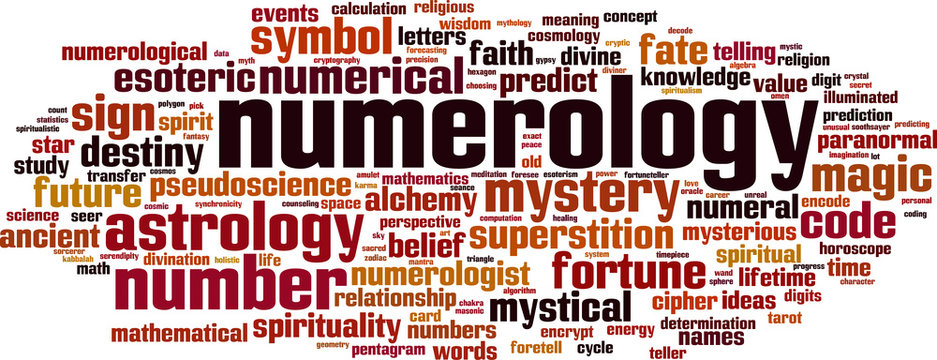
Personality Number
The Personality Number, also known as the Outer Personality Number or Expression Number, is a fundamental aspect of numerology that provides insights into how an individual is perceived by others. Derived from the consonants in one’s birth name, this number reflects the outward expression of one’s personality and the characteristics that others may readily observe. Here’s a comprehensive exploration of the significance and interpretation of the Personality Number:
Calculation:
To calculate the Personality Number, assign numerical values to the consonants in the full birth name using a numerology chart. Add the values together and reduce them to a single digit or master number.
For example, for the name “Emily Johnson,” the calculation might be: 4 (M) + 3 (L) + 1 (Y) + 1 (J) + 5 (N) + 5 (J) + 6 (H) + 5 (N) = 30, which reduces to 3 + 0 = 3.
Meaning and Interpretation:
The Personality Number represents the characteristics and traits that an individual projects to the outside world.
It provides insights into how others perceive and interact with the person based on their visible qualities.
Outer Expression:
Unlike the Life Path and Destiny Numbers, which focus on inner aspects and life purpose, the Personality Number is concerned with the external self.
It reflects the persona that individuals consciously or unconsciously present to the world.
Social Interaction and Communication Style:
The Personality Number is closely tied to an individual’s communication style and how they engage with others.
It can offer insights into whether a person is outgoing, reserved, expressive, or analytical in their interactions.
Appearance and First Impressions:
The traits associated with the Personality Number may influence physical appearance and the first impressions people have of an individual.
It can indicate qualities such as charm, charisma, or a more serious demeanor.
Adaptability and Flexibility:
Individuals with different Personality Numbers may exhibit varying levels of adaptability and flexibility in social situations.
Some numbers may be more adaptable and able to connect with a diverse range of people, while others may prefer a more stable and consistent approach.
Expression of Emotions:
The Personality Number can provide insights into how an individual expresses emotions.
Some numbers may be more expressive and open about their feelings, while others may have a more reserved or introspective demeanor.
Career and Social Roles:
The traits associated with the Personality Number may influence career choices and social roles.
It can guide individuals toward professions and activities that align with their natural expression and strengths.
Personal Growth and Awareness:
Understanding the Personality Number is a journey toward self-awareness and personal growth.
It encourages individuals to be conscious of how they present themselves and how their outer expression aligns with their inner selves.
Compatibility in Relationships:
The Personality Number can also be considered when assessing compatibility in relationships.
Individuals with harmonious Personality Numbers may find it easier to connect and communicate effectively.
The Personality Number, with its emphasis on the outward expression of self, offers valuable insights for individuals seeking to understand how they are perceived by others and how they can navigate social interactions with authenticity and self-awareness.
Compatibility in Numerology
Compatibility in numerology is a fascinating aspect that explores the dynamics between individuals based on their numerological profiles. By analyzing key numbers, such as the Life Path, Destiny, and Personality Numbers, numerologists can provide insights into the potential harmony or challenges within relationships. Here’s an in-depth look at how numerology approaches compatibility:
Life Path Compatibility:
The Life Path Number is often considered the most crucial factor in determining compatibility.
Individuals with the same Life Path Number may share similar values, life goals, and approaches to challenges, fostering understanding and compatibility.
Compatible Life Path Numbers:
Life Path 1 and 5: Both are adventurous, independent, and energetic.
Life Path 2 and 8: The nurturing and supportive nature of 2 complements the leadership qualities of 8.
Life Path 3 and 6: Creativity and sociability of 3 align well with the nurturing and responsible nature of 6.
Challenges in Life Path Compatibility:
Life Path 1 and 7: The assertive and independent nature of 1 may clash with the introspective and analytical tendencies of 7.
Life Path 4 and 9: The practicality of 4 may conflict with the idealism of 9.
Destiny Number Compatibility:
The Destiny Number reflects how individuals fulfill their life purpose and can indicate compatibility in terms of shared values and ambitions.
Personality Number Compatibility:
The Personality Number, representing outward expression, can influence how individuals interact and communicate in relationships.
Master Numbers in Compatibility:
Master Numbers (11, 22, 33) are considered powerful and may amplify both positive and challenging aspects of a relationship.
Compatible Master Numbers can create a profound connection, while conflicting ones may result in intensified challenges.
Communication Styles:
The Personality Number can shed light on communication styles, indicating whether individuals are likely to understand and complement each other in the way they express themselves.
Harmony in Key Numbers:
Harmony in key numerological aspects, such as the core numbers and other significant numbers in the individual charts, can contribute to overall compatibility.
Balance of Energies:
Numerology suggests that a balance of energies in key numbers can create a harmonious relationship, while an imbalance may lead to challenges.
Compatibility in Various Life Areas:
Numerology can be applied to assess compatibility in different life areas, including career, family life, and personal growth.
Personal Growth in Relationships:
Numerology emphasizes that relationships are not just about compatibility but also about personal growth and learning.
Challenging aspects in a numerological profile may provide opportunities for growth and understanding.
Synthesis of Numerological Aspects:
A comprehensive numerological analysis considers the synthesis of multiple aspects, including Life Path, Destiny, Personality, and other significant numbers.
Numerology provides a unique perspective on compatibility, offering individuals a tool for self-awareness and understanding in their relationships. While it’s not a definitive guide, many find that numerology adds a layer of insight that complements other aspects of relationship analysis. Ultimately, successful relationships require understanding, communication, and mutual respect, and numerology can be a valuable resource in fostering these qualities.
Scientific Validation?
Numerology is generally considered a pseudoscience from the scientific perspective. Pseudosciences are fields of study that lack empirical evidence, systematic methodology, and the ability to make accurate predictions based on scientific principles. While numerology has historical and cultural significance and has been practiced across various civilizations, it does not align with the scientific method. Here are some key points regarding the scientific perspective on numerology:
Lack of Empirical Evidence:
Scientific disciplines rely on empirical evidence, which involves observable, measurable, and repeatable phenomena. Numerology lacks empirical evidence to support its claims about the influence of numbers on human life.
Subjective Interpretations:
Numerology often involves subjective interpretations of numbers and their supposed meanings. Different practitioners may provide varied interpretations for the same numbers, making it challenging to establish a standardized and consistent framework.
Confirmation Bias:
People engaging with numerology may experience confirmation bias, where they selectively focus on instances that seem to confirm the numerological predictions while overlooking contradictory evidence. This tendency can lead to a distorted perception of the effectiveness of numerology.
Cherry-Picking Examples:
Numerologists may highlight instances where their predictions appear accurate but may ignore cases where predictions do not align. This selective emphasis on supportive examples undermines the scientific reliability of the practice.
No Causal Mechanism:
In scientific inquiry, establishing a causal relationship requires identifying a plausible mechanism through which one variable influences another. Numerology lacks a scientifically supported causal mechanism explaining how numbers could influence human behavior or events.
Not Falsifiable:
Scientific theories must be falsifiable, meaning they can be tested and potentially proven wrong. Numerology, by its nature, is often framed in ways that make it difficult to subject to rigorous testing or falsification.
Cultural and Historical Context:
Numerology has evolved within different cultural and historical contexts, contributing to its diversity of interpretations. However, the cultural and historical origins of numerology do not inherently validate its claims from a scientific standpoint.
No Consensus Among Scientists:
Within the scientific community, there is no consensus or acceptance of numerology as a valid method for understanding human behavior or predicting events. Scientific disciplines rely on rigorous testing, peer review, and a consensus-building process, which numerology lacks.
While numerology may have personal, cultural, or historical significance for some individuals, it remains outside the realm of scientifically validated practices. Scientific perspectives prioritize evidence-based approaches and systematic methodologies, and numerology does not meet these criteria. Individuals interested in numerology should approach it with an understanding of its non-scientific nature and recognize it as a belief system or metaphysical practice rather than a scientifically established discipline.
Numerology and Everyday Life
Numerology, despite being considered a pseudoscience by the scientific community, has found a place in the lives of many individuals who seek personal insight, guidance, and a unique perspective on various aspects of their everyday lives. Here’s a look at how numerology can be integrated into everyday life:
Self-Discovery and Personal Insight:
Numerology provides a framework for self-discovery by assigning significance to various numbers based on birthdates, names, and other personal details.
Individuals often use numerology as a tool for gaining insights into their personality traits, strengths, weaknesses, and life path.
Decision-Making and Life Choices:
Some people turn to numerology when making important life decisions, such as choosing a career path, naming a child, or deciding on significant dates for events.
Numerological guidance may offer a different perspective, influencing choices and actions in alignment with perceived cosmic energies.
Relationships and Compatibility:
Numerology is frequently consulted for relationship compatibility assessments.
Individuals may analyze the numerological profiles of themselves and their partners to gain insights into potential challenges, strengths, and compatibility in various aspects of the relationship.
Timing and Planning:
Numerology includes considerations of cycles and personal years, which some individuals use for timing significant events or making major life changes.
Planning activities or making decisions based on favorable numerological periods is believed by some to enhance the likelihood of success.
Name Changes and Personal Branding:
Individuals exploring personal or professional transformations may consider changing their names based on numerological principles.
Numerology enthusiasts believe that aligning a name with specific numbers can positively influence one’s life path and experiences.
Spiritual Growth and Mindfulness:
Numerology is sometimes incorporated into spiritual practices and mindfulness routines.
Some individuals use numerology as a tool for meditation, reflection, and aligning their actions with a perceived higher purpose.
Number Symbolism in Daily Life:
People often notice repeating numbers in their daily lives (e.g., 11:11, 333), which some interpret as symbolic messages from the universe.
Numerology enthusiasts may assign personal meanings to these occurrences and use them as signs or affirmations.
Business and Branding:
Entrepreneurs and business owners may turn to numerology when creating brand names, logos, or choosing launch dates.
Aligning a business with numerological principles is believed by some to enhance its success and resonance.
Personal Growth and Transformation:
Numerology can serve as a tool for personal growth, encouraging individuals to reflect on their experiences, challenges, and opportunities.
Some see numerology as a guide for continuous self-improvement and transformation.
While numerology lacks scientific validation, many individuals find value in incorporating its principles into their lives. Whether for personal reflection, decision-making, or a sense of spiritual connection, numerology remains a subjective and personal tool that some people use to navigate the complexities of everyday life. It’s important to approach numerology with an open mind, recognizing it as a belief system or metaphysical practice rather than a scientifically proven discipline.
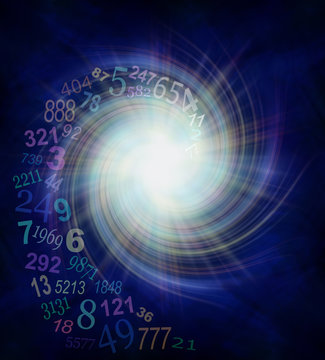
Future Trends in Numerology
Considering the growing interest in holistic well-being, self-discovery, and alternative practices, we can make some conjectures about potential future trends in numerology:
Integration with Technology:
The advent of technology may see an integration of numerology into mobile apps, online platforms, and wearable devices. This could make numerological insights more accessible to a broader audience.
Scientific Exploration:
While numerology is currently considered a pseudoscience, there might be increased interest in scientific studies to explore its psychological and sociological implications. Research might aim to determine whether certain aspects of numerology have measurable effects on individuals.
Personalized Numerology Services:
Future trends may involve more personalized and tailored numerology services. Individuals could access comprehensive reports, consultations, and guidance specific to their unique profiles and life circumstances.
Business and Career Guidance:
With the increasing focus on personal and professional development, numerology may be sought after for business and career guidance. Entrepreneurs and professionals might explore numerology for branding, business names, and strategic decision-making.
Incorporation in Education:
Educational institutions might explore integrating numerology into courses related to psychology, philosophy, or personal development. This could contribute to a more holistic understanding of the self and others.
Globalization of Numerological Practices:
As the world becomes more interconnected, there might be an exchange and integration of numerological practices from various cultures. This globalization could lead to the emergence of new perspectives and interpretations.
Data Analytics and Numerology:
The field of data analytics may explore correlations between numerological factors and patterns in personal and societal behaviors. This could lead to more sophisticated analyses and applications of numerological insights.
Scientifically Informed Numerology Apps:
Mobile applications focused on numerology may evolve to incorporate scientifically informed principles. These apps could provide users with data-driven insights and recommendations based on a combination of numerological and empirical data.
Integration with Other Holistic Practices:
Numerology might increasingly be integrated with other holistic practices such as astrology, tarot, and energy healing. This interdisciplinary approach could offer a more comprehensive understanding of an individual’s spiritual and personal journey.
Research on Numerology’s Impact:
There may be an increase in research efforts to understand the psychological and emotional impact of numerology on individuals. Studies might explore whether engaging with numerology has measurable effects on well-being and personal growth.
It’s important to note that the acceptance and evolution of numerology will likely vary across different cultures and belief systems. Additionally, public interest and societal trends play a significant role in shaping the future trajectory of practices like numerology. As these trends unfold, it will be interesting to observe how numerology continues to adapt and find its place in the evolving landscape of holistic well-being and self-discovery.
Conclusion
In conclusion, numerology numbers continue to captivate individuals seeking a deeper understanding of themselves and the world around them. Despite the skepticism from the scientific community, numerology has endured throughout centuries, evolving across cultures and weaving its way into the tapestry of human spirituality.
The allure of numerology lies in its ability to offer a unique lens through which individuals can explore their personalities, life paths, and destinies. From the Life Path Number that illuminates the journey we are destined to take, to the Destiny and Personality Numbers that provide insights into our life purpose and outward expressions, numerology provides a framework for introspection and self-discovery.
As we navigate the complexities of our lives, numerology serves as a guiding light, offering insights into compatibility, decision-making, and personal growth. It is a tool that many embrace for its potential to bring a sense of meaning, purpose, and harmony to their existence.
Whether one approaches numerology with unwavering belief or a healthy dose of curiosity, its influence persists in shaping the narratives of countless individuals. The future of numerology may hold technological advancements, scientific exploration, and an even more widespread integration into diverse aspects of our lives.
In the end, the power of numerology lies not only in the numbers themselves but in the meanings and interpretations we attribute to them. It remains a deeply personal and subjective journey, inviting individuals to reflect on the patterns, symbols, and energies that resonate with their souls. As we venture forward, the world of numerology continues to beckon, promising a mystical journey of self-discovery for those willing to explore its enigmatic depths.

